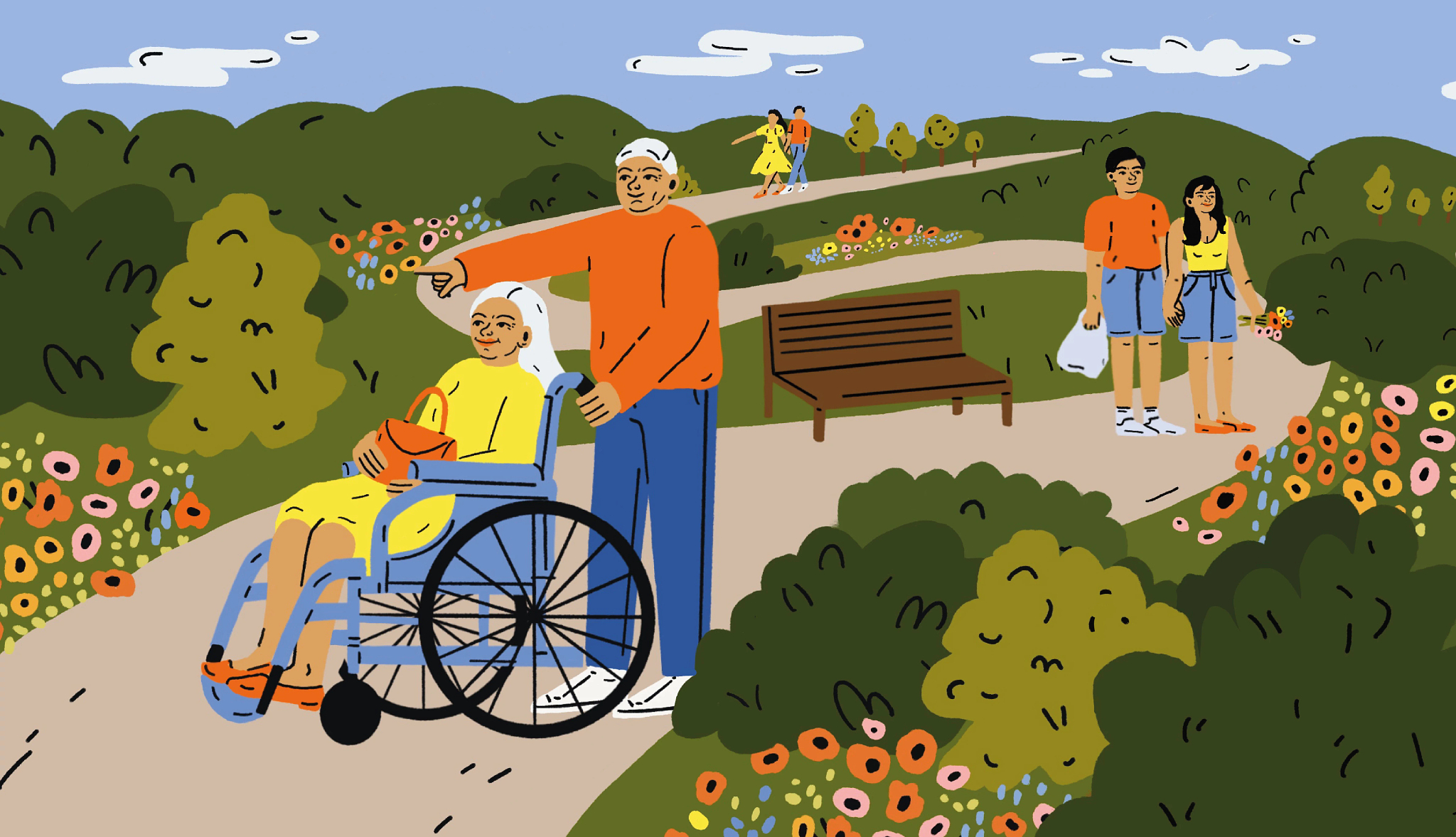AARP Hearing Center


I miss shmying.
Shmy is a Yiddish word that means “wander.” You don’t have a specific goal or destination in mind. You’re just … shmying around.
Maybe you’re stretching your legs in your neighborhood. Or maybe you’re on a trip and decided to take a leisurely stroll. Shmying is an excellent way to escape daily stresses and the pressures of to-do lists.
If you have a shmying partner, you’ll likely be idly chatting about anything and everything while you take in the sights and sounds. My wife, Marsha, and I were excellent shmyers. We both love walking … and talking!
Marsha was diagnosed with dementia not too long ago. At first, she had trouble coming up with common words. Then she had the telltale loss of memory and she could no longer locate the bathroom without assistance. Her walking pace slowed and getting into a car was a challenge. About a year ago, she pretty much stopped walking altogether. That’s when our adult daughters and I made a wrenching decision. Marsha moved into a memory-care home.
At home alone, I mourned the loss of a partner who could join me on outings to celebrate milestone moments like a grandchild’s birthday, who could revel in the discovery of a new restaurant, who could join me in visiting a blockbuster museum exhibit.
But there was another kind of loss — and it didn’t hit me until this past summer.
I was visiting our older daughter and her family in Utah. We stopped at a farmers market in Midway, a town that Marsha and I had visited a few years back. Midway boasts that it’s “Little Switzerland.” There are mountains in view. And while it’s a charming town in a low-key kind of way, it didn’t seem notably Swiss — or especially memorable. We stayed in a generic hotel, had a decent brunch, sashayed down main street, visited a few stops. In other words, we shmyed.
I hadn’t thought about Midway even once since that day. But there I was, on the same sidewalks where we’d strolled aimlessly about. Memories came flooding back: There was the cute garden shop where we browsed, the grocery store where we bought a bottle of water, the old-fashioned ice cream parlor where we stopped for a treat.
A tear or three welled up in my eyes. I realized that one of the biggest losses from dementia was actually a small loss. The loss of my shmying partner.





























































You Might Also Like
25 Ways to Bind up Grief’s Wounds
How to heal when the deep shadows of loss pierce your heartIs It Time to Hang Up the Landline?
Writer Bobbi Dempsey explains why she is hesitant to cut the cordHow to Deal With a Defiant Teen
Keeping the communication lines open when your once-sweet kiddo gets a little prickly
Recommended for You